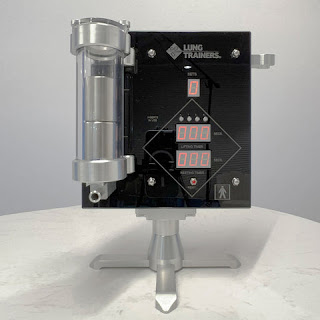Fundamentals of Yoga Breathing Exercises
One of the most common comments I hear in my yoga class, and from yoga beginners, is that they find yoga breathing exercises for musicians to be the most beneficial, But it's also the most challenging set of asanas.
This is especially true since many traditional and alternative health practitioners refer to breathing as the essence of life. Sleep, wakefulness, birth and death, and light and darkness are all examples of the main rhythms we perceive in life.
With this in mind, it's no wonder that extensive research has been done on the impact of breathing on several parts of our lives, including health, emotional well-being, relationships, and the state of society in general.
The breath is referred to in yoga as prana, pervasive energy that may integrate the body, mind, and spirit and is the foundation of yoga and meditation. Yoga breathing exercises then become a collection of yoga breathing practices aimed at maximizing the universal energy that exists in all of us.
Yoga practitioners believe that this state of harmony is inherent and that many factors of life distract us from our inner peace. Yoga breathing exercises are one of the most basic ways of controlling and even eliminating the impact of external influences on our general health and well-being.

Take, for example, our fight-or-flight reflex. Our ancestors' inherent fight or flight reflex served them well, arising time and time again to defend them from danger and injury. Most of us today are plagued by a near-permanent fight-or-flight response that causes digestion issues, high blood pressure, clogged arteries and a slew of other stress-related maladies.
Yoga breathing exercises help to break down the mind-body reaction and refocus on our natural state of inner harmony, which helps to alleviate chronic stress.
Basic Yoga Breathing Exercises
The good news is that we don't need to be masters of yoga breathing exercises to reap the advantages, but yoga breathing techniques must adhere to some basic rules.
Slowly and deeply inhale. To begin, we must give ourselves permission, time, and motivation to exercise to improve our breathing. Yoga breathing techniques have been demonstrated to help us acquire control over our thoughts and bodies, but only if you practice consistently for several months will you see results.
Recognize the anatomy and physiology of breathing. Controlling the depth of breathing exercises, as well as adjusting the speed of inhalation and exhalation, is an important aspect of advanced yoga breathing techniques. The purpose of yoga breathing (pranayama) is to relax the mind and heart while also increasing the oxygenation of cells in the body - also known as respiration. To master pranayama, visualize clean, pure oxygen entering your body while observing the cleansing and emission of gas during breathing.
Pay attention to your body while you breathe. Yoga breathing techniques highlight the role of your body, including your belly, ribs, thorax, and chest, as well as your lungs, in the yoga breathing process. Belly puffiness is a critical indicator that you're getting enough oxygen when you practice deep breathing, for example. You can only completely master pranayama if you are aware of the rhythm of your breathing in any activity at any time of day (yoga of breathing).
Source Url :- https://sites.google.com/view/lungtrainers-05/home

Comments
Post a Comment